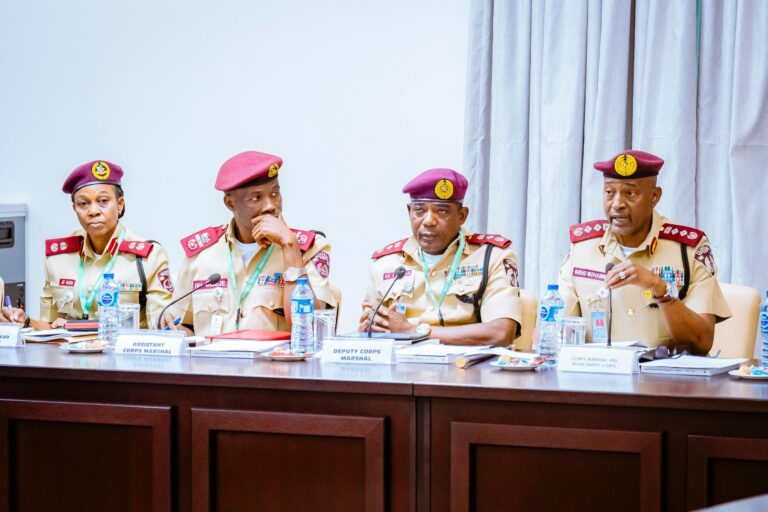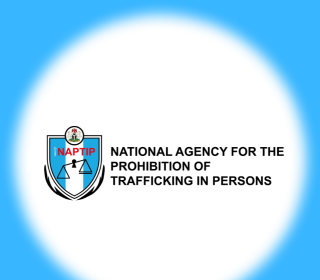By Adeyemi Adekunle
Abuja, Nigeria – In a bid to tackle the persistent challenge of road crashes and enhance traffic safety across Nigeria, the Federal Road Safety Corps (FRSC) has inaugurated a National Road Safety Advisory Council (NARSAC). The council, which includes six state governors, key ministers, and other critical stakeholders, was officially launched at the Presidential Villa, Abuja, marking a significant milestone in Nigeria’s road safety efforts.
Speaking at the inauguration, FRSC Corps Marshal, Shehu Mohammed, emphasized the importance of collective action to mitigate the alarming rate of road crashes in the country. Mohammed highlighted that while there has been a steady decline in road accidents over the past month, the numbers remain “unacceptably high.” He called for an all-hands-on-deck approach, involving commuters, transport unions, and government bodies to promote road safety and reduce fatalities.
“See Something, Say Something”: Passengers as Key Players in Road Safety
One of the focal points of Mohammed’s address was the critical role passengers play in ensuring road safety. He stressed that commuters must be vigilant and proactive when drivers violate traffic rules, noting that silence in the face of reckless driving can cost lives. “If you see something, say something. Passengers can do much in reducing road crashes and saving lives, but often, they remain silent,” he remarked.
Mohammed expressed concern that passengers who raise alarms about dangerous driving are sometimes silenced by their fellow travelers, a practice he described as dangerous and counterproductive. “Life has no duplicate,” he stressed, urging passengers to speak up and prevent potential disasters on the roads.
Collaboration with Transport Unions and Grassroots Leaders
The FRSC boss underscored the need for deeper collaboration between the FRSC, transport unions, and commuters in promoting a culture of safety on Nigerian roads. He revealed that the corps has embarked on nationwide campaigns in motor parks and public spaces to instill safe driving habits and encourage a more responsible attitude among drivers and passengers.
Mohammed also highlighted the importance of addressing the issue of alcohol consumption and substance abuse by drivers. He noted that the FRSC is working closely with traditional rulers and community leaders to reach rural areas and educate drivers on the dangers of impaired driving. “We will continually visit motor parks to dissuade drivers from taking alcohol or any substance capable of affecting their moods and psyches,” he said.
The Role of the National Road Safety Advisory Council
The newly inaugurated National Road Safety Advisory Council (NARSAC) aims to address the country’s road safety challenges more strategically. Mohammed described NARSAC as a crucial component in the implementation of the Nigeria Road Safety Strategy (NRSS), which seeks to improve road design standards, enhance non-motorised transport, and strengthen safety frameworks.
He believes the council’s work will pave the way for a drastic reduction in road crashes and fatalities, noting that the advisory body’s involvement will ensure the swift execution of road safety reforms. “With the council’s guidance, the FRSC can move closer to realising its vision and mission of safer roads and reduced fatalities across the country,” Mohammed explained.
A Call to Action for Motorists
As part of ongoing efforts to curb road accidents, Mohammed reiterated the importance of adhering to traffic regulations. He urged commercial drivers to avoid overloading, refrain from using mobile phones while driving, and ensure vehicles are in proper condition before hitting the road. The FRSC will continue its awareness campaigns to promote responsible driving and reduce the risk of accidents.
As Nigeria grapples with the high toll of road crashes, the establishment of NARSAC signals a renewed commitment by the federal government and key stakeholders to reverse the trend and create safer roadways for all citizens.
The FRSC remains dedicated to its mission, but as Mohammed emphasized, road safety is a shared responsibility. The active participation of commuters, drivers, and the government is essential in preventing accidents and saving lives on Nigerian roads.




